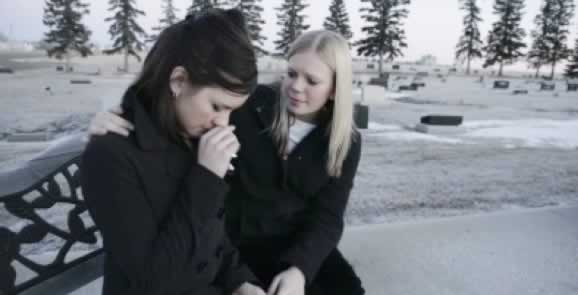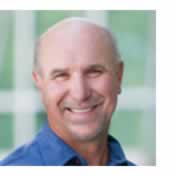Finding the right counselor ranks right up there with finding a good doctor ? and should be approached in a similar fashion. Great counselors can be found! If you feel you need to find a counselor for yourself or a family member, do your homework! The more effort you put into finding the right counselor, the more likely you or your family member will have a good experience and find the help you/they need. Here are 5 tips for finding the right counselor.
1) Ask a trusted friend or pastor for a recommendation. People who have had positive experiences with counseling can be a good source for finding the right counselor. Additionally, most pastors usually have one or more counselors that they recommend.
2) Have a phone conversation with potential counselors before making an appointment. Speaking with a counselor before you make an appointment provides a good opportunity to sense whether you will be able to create a sense of rapport with the prospective counselor ? as well as “interviewing” them ? trying to find out their experience and approach to counseling. If you have several potential counselors on your list, speak with two or three before making an appointment with any of them.
3) Ask the right questions to potential counselors. Beneficial questions you might ask a potential counselor include:
What are your credentials?
Which areas of counseling do you consider to be your strength?
Which areas of counseling do you consider to be weak in?
What is your approach to counseling?
How do you determine the appropriate time when counseling is no longer needed?
What is the average time that your clients undergo counseling?
Do you integrate issues of faith into your counseling? If so, how?
What are your fees for counseling?
Do you use a sliding fee scale’ (fees based on a person’s financial status?)
Have you ever had credentials or licenses revoked or suspended?
Have you ever been disciplined by any professional organization?
4) Make a choice and take your new counselor for a “test drive”. Once you chosen a counselor and made first appointment, treat the first session as you would a “test drive” for a new automobile. Most counselors will use a first session to get to know you and to get a read on your history and need for counseling. Further, they may possibly outline an initial approach and together set goals for your counseling sessions. You should use this first session to help you decide whether or not you feel the counselor is well suited to you personally ? and your to your issue(s) ? and if you want to work together. Remember, even as a automobile “test drive” is not a commitment to purchase, treat a first session as the time to decide whether or not you want to continue seeing this counselor.
5) Evaluate the first session. Here are some questions to ask after the first session which may be beneficial in deciding whether or not you’ve found the right counselor.
Did the counselor behave professionally?
Was the counselor engaged and alert while you shared your story of why you want to see a counselor?
Did the counselor really listen to your?Did you feel a sense of rapport with the counselor?Do you feel you can trust the counselor?
Do you feel the counselor’s approach to your issue(s) will be helpful to you?
Did the counselor push or lecture you in ways that seemed inappropriate or unhelpful?
Did the counselor help you set some goals for your time in counseling?
If you decide that this counselor is not the right one for you, go back through the steps outlined above and begin the process over again. It may be frustrating to start the process over again. Keep in mind, however, that working with a counselor that you don’t feel is right for you can lead to far more frustration (and even heartache!) than the time and energy it may take to find the one that you will feel comfortable with.
Printed by permission of HomeWord (formerly YouthBuilders); Copyright © 2004. For additional information on HomeWord, visit www.homeword.com or call 800-397-9725.



 Jim Burns, Ph.D., is a renowned youth and family expert, an acclaimed author, and the founder of HomeWord, a radio program that reaches more than a million people across the country each day. In partnership with Azusa Pacific University, he established and now provides leadership for the HomeWord Center for Youth and Family, a research and training institute offering biblically based resources for parents and youth. Under Burns, the center has become the largest provider of Christian parenting and youth seminars in the United States. His passion is communicating to adults and young people practical truths to help them live out their Christian lives. Burns is a three-time Gold Medallion Award-winning author and has written books for parents, youth workers, and students. He also speaks in person to thousands of people each year around the world. Burns and his wife, Cathy, and their daughters, Christy, Rebecca, and Heidi, live in Southern California. For more information about Burns, visit homeword.com.
Jim Burns, Ph.D., is a renowned youth and family expert, an acclaimed author, and the founder of HomeWord, a radio program that reaches more than a million people across the country each day. In partnership with Azusa Pacific University, he established and now provides leadership for the HomeWord Center for Youth and Family, a research and training institute offering biblically based resources for parents and youth. Under Burns, the center has become the largest provider of Christian parenting and youth seminars in the United States. His passion is communicating to adults and young people practical truths to help them live out their Christian lives. Burns is a three-time Gold Medallion Award-winning author and has written books for parents, youth workers, and students. He also speaks in person to thousands of people each year around the world. Burns and his wife, Cathy, and their daughters, Christy, Rebecca, and Heidi, live in Southern California. For more information about Burns, visit homeword.com.









